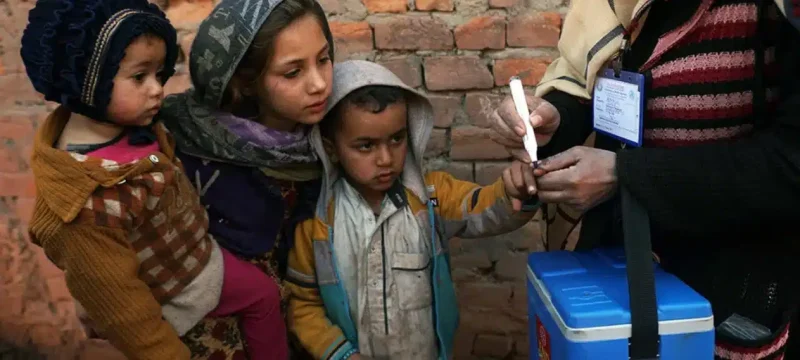For decades, polio has posed a significant threat, causing paralysis and fatalities among children worldwide. However, thanks to concerted global efforts, we stand on the cusp of victory in eradicating this debilitating disease. With polio now restricted to isolated pockets in Pakistan and Afghanistan, experts express optimism that the endgame is near.
In a recent virtual briefing commemorating a decade since India achieved polio-free status in March 2014, experts lauded the progress made in combating this disease, notorious for its propensity to spark outbreaks.
Also Read: Second Polio Case in Two Days Raises Alarm
Dr. Ananda Bandyopadhyay, deputy director of polio technology, research, and analytics at the Bill & Melinda Gates Foundation, underscored the advancements, noting that while polio remains endemic in Pakistan and Afghanistan, its prevalence is now confined to very limited regions within these countries.
He described the virus as being “on its last legs” within these remaining areas.
In Pakistan, there have been two reported cases of wild poliovirus this year, down from six in 2023. Similarly, Afghanistan has not reported any cases this year, compared to six cases last year.
Experts attribute this progress to ongoing vaccination efforts, which have brought polio to the brink of extinction.
Hamid Jafari, director of polio eradication for the WHO Eastern Mediterranean Region, highlighted that until 2020, approximately 13 strains of wild poliovirus were circulating across neighboring countries. However, since then, only two strains remain, primarily in southern parts of the Khyber Pakhtunkhwa province in Pakistan and eastern Afghanistan.
Despite successfully clearing historic reservoirs of the virus in both countries, challenges persist in reaching remote populations, complicating vaccination campaigns.
Jafari noted that Pakistan faces additional hurdles due to militancy, particularly in the remaining areas where the virus persists.
Lessons gleaned from India’s triumphant polio eradication efforts have been applied in Nigeria, resulting in its declaration as polio-free in June 2020. Many of these strategies have also been integrated into programs in Pakistan and Afghanistan.
The World Health Organization (WHO) reports a more than 99% decline in wild poliovirus cases since 1988, largely attributed to the efforts of the Global Polio Eradication Initiative, supported by organizations such as WHO, UNICEF, Rotary International, the US CDC, and the Bill & Melinda Gates Foundation.
Jay Wenger, director of the polio program at the Gates Foundation, underscores the imperative of sustaining global endeavors against polio, emphasizing that as long as polio persists anywhere, it poses a threat everywhere.









